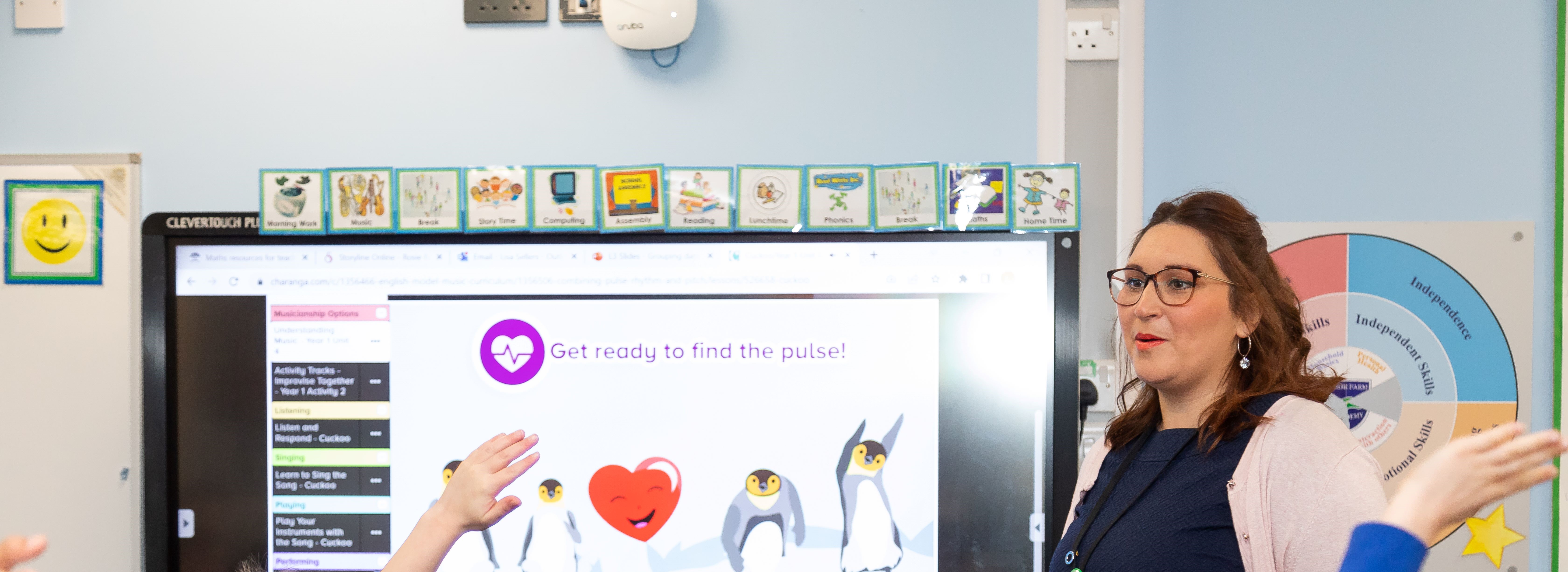
Our children are given opportunities to learn about ways of thinking and of communicating ideas. They investigate scientific concepts and processes in a fun and exploratory way which promotes scientific thinking and a love of learning.
At Manor Farm Academy, we believe that the teaching of science is a cornerstone of the curriculum in that it nurtures the natural curiosity of pupils. Our science curriculum aims to cultivate a progressive, fun and engaging route into science with scientific enquiry at the heart of learning. Through logical sequencing, our pupils work scientifically throughout the school to engage with stimulating questions. We strive to develop curious and ambitious pupils ready to explore and enter the world of science around them.
The curriculum equips pupils with essential skills to work scientifically and conduct various types of scientific enquiries, including classification, pattern seeking, observation over time, fair and comparative testing, and research. It builds upon the previous year’s knowledge and skills while imparting important vocabulary through scientific enquiry, teacher-led discussions, and class interactions. Pupils are encouraged to make predictions, ask questions, analyse findings, and draw conclusions about the subject matter. The curriculum not only celebrates and questions scientific knowledge from both the past and present but also explores the contributions of scientists who have significantly impacted our lives and environment at local and national levels. Ultimately, it engages children with the fascinating world of science, fostering curiosity and exploration.
The unit begins with a pre-assessment and concludes with a post-assessment to measure students’ progress, with teachers using assessment for learning (AfL) to gauge attainment in science. Each lesson is guided by enquiry questions, prominently displayed on the science working wall throughout the week. There are opportunities for students to recall and recap previous learning, ensuring retention of foundational knowledge. Medium-term plans are designed to address common misconceptions, allowing teachers to pre-emptively tackle these issues before each lesson. The subject content encourages curiosity and prompts students to ask questions about the wider world. All scientific inquiry types are covered at least once, along with a working scientifically statement from the framework, ensuring that all pupils are challenged and given the opportunity to grapple with their learning. In Key Stage 2, there is a focus on celebrating scientific discoveries from both the past and present.
At Manor Farm Academy, our pupils develop a clear understanding of what science is and recognise its importance for their future. They learn that science is all around them and plays a role in everything they do. Our students not only enjoy science but also demonstrate inquisitiveness and curiosity through active questioning, making predictions, conducting inquiries, and forming conclusions. They feel both challenged and supported, enabling them to reach their full potential in the subject.
Children learn in a variety of ways: sometimes children will research using iPads or laptops, often presenting their findings to the rest of the class at the end of the session; in other lessons, children learn through investigation. Where relevant, teachers use video to capture children’s interest and explain complex ideas.
Every classroom uses a working wall for science which is updated at the start of every science lesson. The enquiry question is recorded for the session, findings are added to the display during the lesson, predictions are written on the display, key vocabulary is added to throughout the term on the display and any conclusions are also recorded for that lesson. In Y6, the independent and dependent variables are recorded for each enquiry too.
Children enjoy science at Manor Farm and this is evident both in behaviour for learning during science lessons, as well as the pride they take in the presentation and quality of their work.
At Manor Farm, children engage in a variety of trips and experiences that bring their learning to life. In Reception, they participate in activities such as enjoying a spring walk around the local area, and going on a mini beast hunt.
Year 1 pupils take a trip to Woodside Wildlife Park, while Year 2 have chicks in the classroom and a residential trip to Rand Farm. Year 3 pupils explore the Magna Science Museum, and Year 4 enjoy an animal handling experience.
In Year 5, they go pond dipping and learn about the impact of sugar on the body at Lincolnshire Showground. Finally, Year 6 pupils engage in hands-on learning by dissecting a pig heart and utilising a fossils loan box.